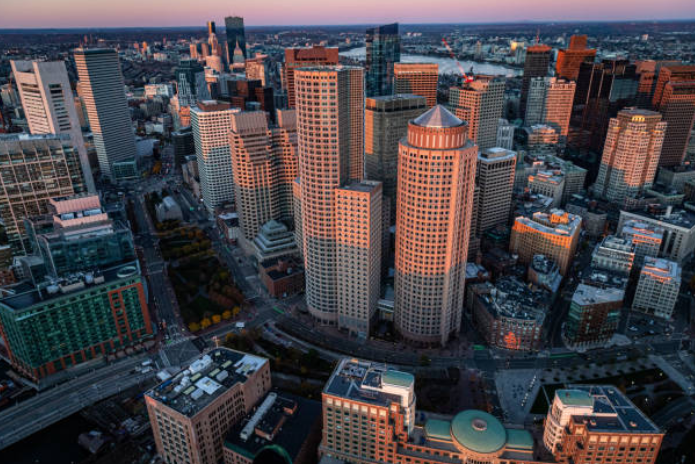What Will Boston's Real Estate Market Look Like in Five Years?
Posted By: Boston City Properties
After the rollercoaster ride that was 2020, Boston real estate watchers are experiencing a bit of whiplash at the moment. Now that 2021 is in full swing, optimism about residential and commercial real estate across Greater Boston is rising. With so many factors at play, including the exploding life sciences industry and the flight of homeowners from urban to suburban areas, it will be interesting to see how Boston's real estate markets evolve over the next handful of years. Read on to get a feel for how Boston real estate may look five years from now.

White-Hot Residential Market to Continue
Residential real estate across the country was hit hard by the COVID-19 pandemic. Although many people struggled to remain in their homes after losing their jobs and otherwise suffering from the pandemic, others found it the perfect time for big moves. Thanks to social distancing and demand for more space in general, many urban dwellers spread out across the Boston suburbs in the wake of the pandemic, scooping up sprawling suburban homes en masse. The phenomenon has been a significant boon for many outlying Boston suburbs, where home values continue to rise – and inventories remain tight.
As vaccines are distributed and workers return to the office, demand for urban dwellings is sure to increase once more. In fact, that is likely to happen while demand for large suburban homes remains strong. Therefore, over the next five years, we're apt to see surging demand – and prices – for homes across the city and suburbs. In suburban areas, bidding wars for the largest and newest homes will likely continue unless construction activity rises sharply. In the city, demand for townhouses and condos in the city's most popular neighborhoods, including the Seaport, will remain robust for the foreseeable future.
A Quicker Recovery for Boston Commercial Real Estate
As was the case across most major U.S. cities, Boston's office space market was hit hard by the pandemic. As 2020 wore on, negative absorption shot up across the city's office space submarkets. At the same time, subleasing activity reached nearly an all-time high, with nearly 3 million square feet available on the sublease market at the start of 2021. The average term is three to four years, and many companies will be deciding in the next year or so whether to reoccupy the space or keep it on the market. If the latter becomes the prevailing trend, office lease prices are likely to start increasing before the end of 2021, and they could keep rising over the next several years.
Over the last 12 months or so, construction started on several office towers, ensuring the delivery of at least 2.6 million additional square feet of office space to the market over the next three to four years. If the sublease market doesn't improve by the end of 2021, there's a good chance that much of the space could be delivered vacant. However, Boston's white-hot life sciences industry continues to grow, and this reduces the risk of office towers across the city sitting empty for too long.
Indeed, the most significant silver lining for Boston that emerged from the pandemic has been the ongoing explosion of the local life sciences industry, which has triggered out-of-this-world demand for prime lab space. Kendall Square and most of Cambridge were already at or near capacity when the pandemic struck, spurring the development of new life sciences hubs in places like the Seaport and Fenway. Many Boston suburbs have gotten into the act with their own life-science developments too.
Unfortunately, life science firms have specific requirements when it comes to commercial space. As a result, they can't easily occupy regular office environments, which lack the necessary ventilation and other features. However, office-to-lab transitions are filling the gap, transitioning office space into prime life sciences space across Greater Boston. These transitions take time and money, and many are currently underway. Over the next five years, significant amounts of Boston office space could transition into lab space, further cementing Boston's hold on the life sciences market. Either way, the life sciences industry's strength will help Boston's commercial real estate market recover faster than most others.
Click Here
to Search
sales
Click Here
to Search
rentals

